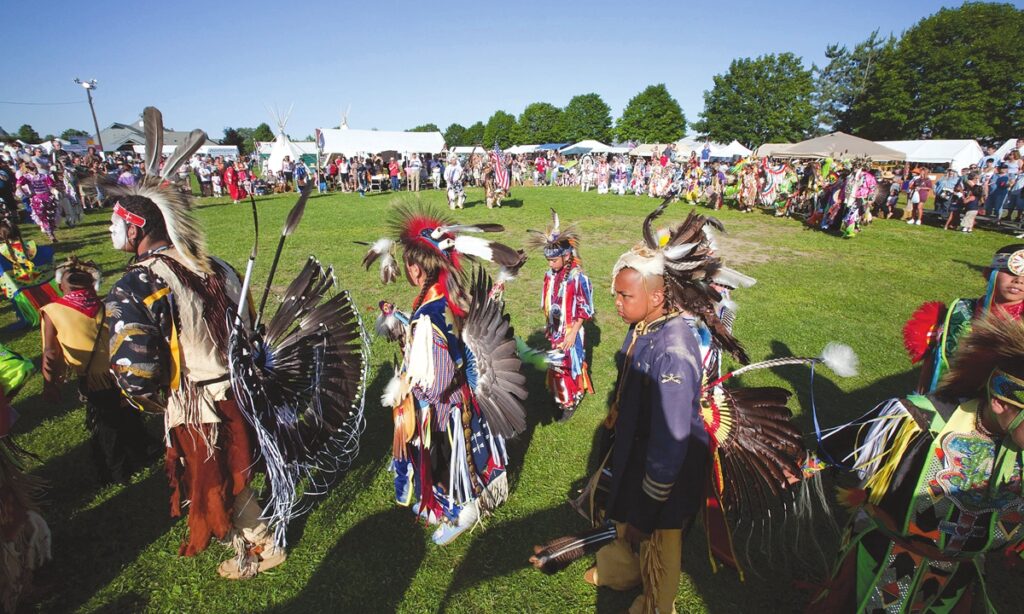For nearly two years, Aubrey Dameron, a citizen of the Cherokee Nation in Oklahoma, has been missing. Last seen in March 2019, Dameron disappeared while leaving her mother’s rural home early in the morning.
Her family has been following various leads, including draining a pond near her home, but is no closer to discovering what happened to Dameron, who was 25 when she disappeared, her aunt, Pam Smith, told Reuters.
Now, as two Oklahoma attorneys partner with the Cherokee Nation and the Muscogee (Creek) Nation on a new pilot project to raise awareness, resources and protocols for cases of missing and murdered indigenous people, Smith finally feels some hope.
“Since Aubrey’s gone missing and we’ve been fighting to get help, I hope they follow through and understand what causes our people to go missing and become murdered,” she said.
According to US Census data, 9.4 percent of Oklahoma’s 4 million residents identify as American Indian or Alaska Native.
In July 2020, the Federal Bureau of Investigation’s National Crime Information Center reported that there were more than 1,400 unresolved Native American and Alaska Native missing person cases in the country.
Historically, the issue has centered around women and girls, according to US Attorney of the Northern District of Oklahoma Trent Shores, because research shows Native American women and girls are disproportionately victims of violent crimes.
Launched in November 2020, the Tribal Community Response Plan is a collaboration between officials of the two tribal nations along with Shores and Brian Kuester, US Attorney of the Eastern District of Oklahoma.
It addresses missing and murdered indigenous persons (MMIP) by focusing on four areas: law enforcement, victim services, community outreach, and media and public communications.
While COVID-19 has disproportionately affected indigenous communities, the pandemic has not waylaid the new initiative, said Shawn Partridge, who deals with community and human services for the Muscogee (Creek) Nation.
Tribal nations in Oklahoma have not been hit as hard as some in other locations and community meetings are still taking place virtually, she noted.
Looking ahead to Joe Biden’s presidency, Shores made clear at the launch press conference that he and Kuester will recommend to the new administration that it continue with the initiative.
Following the pilot project in Oklahoma, the plan will launch in other states, Shores said in a phone interview, so that it is “tailored to the specific needs and uniqueness of each tribal community.”
Victims of violent crime
In November 2019, then US Attorney General William Barr launched the MMIP Initiative, with an initial infusion of $1.5 million.
The plan was to hire coordinators in 11 states to set protocols and procedures for responding to cases of missing and killed indigenous people, according to the Department of Justice.
The Tribal Community Response Plan stems from Barr’s MMIP Initiative, explained a spokeswoman at one of the Oklahoma US Attorney’s Offices.
It does not carry out investigations but allows indigenous people to review and implement draft guides based on their unique cultures and needs, she said.
A National Institute of Justice report released in May 2016 found that more than four in five Native American and Alaska Native women have experienced violence in their lifetime. But in Oklahoma, a majority of missing indigenous residents are boys and men, Shores said, so the Tribal Community Response Plan was designed to include all missing indigenous persons, regardless of gender.
“We didn’t want to leave out any group of victims,” he said.
Partridge at the Muscogee (Creek) Nation said the project will amplify the impact of the tribe’s already active family violence prevention program, which works closely with law enforcement.
“We’re trying to prevent homicides with the work we’re doing to address crimes such as domestic and sexual violence,” she said in a phone interview.
Each year, the Muscogee (Creek) Nation works with more than 400 victims from their reservation, primarily dealing with domestic violence, she added.
‘You’re not alone’
Not everyone approves of the new project.
Olivia Gray is chair of the board and CEO of NOISE is Power, an advocacy group for families of missing and murdered indigenous people in Oklahoma.
The organization, in the process of receiving nonprofit status, offers services like K9 teams to look for missing people and housing assistance for the homeless.
Gray said grassroots groups are not included in developing response plans, raising concerns vital services are being overlooked.
“There are many doing this work,” said Gray, a member of the Osage Nation. “Databases are great, but we need services tonight.”
The Oklahoma US Attorney’s Office spokeswoman said federal investigators, public affairs and communications specialists, and community outreach and victim experts are still working on draft guides.
Tribes will provide feedback, deciding which other organizations participate, she added.
Smith, Dameron’s aunt, hopes the project will save other families from the devastation her family has experienced since her niece disappeared.
“Until it happens to you, you don’t understand the urgency of it, but you’re not alone,” she said.
“You just pray, and hope today you get answers,” she added.
Native Americans celebrate their heritage and culture at a PowWow presented by the Redhawk Native American Arts Council at the Sussex County Fairgrounds in New Jersey, the US on July 13, 2009.


